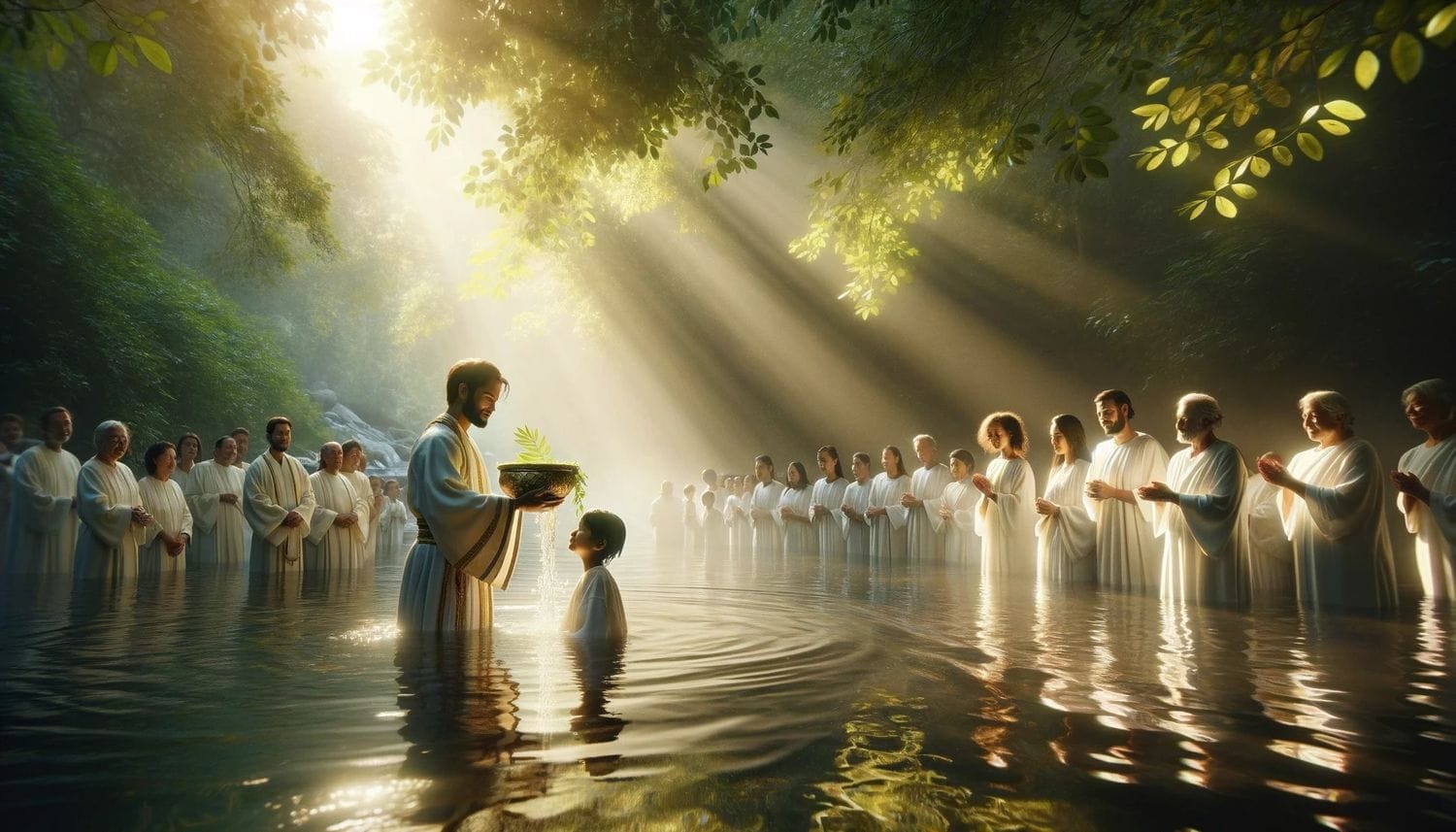Baptism

"Baptism" in the context of "spirit science" can have various interpretations depending on the belief system or spiritual framework you're referring to. "Spirit science" often encompasses a wide range of ideas that blend spirituality with scientific understanding, sometimes exploring topics like consciousness, energy, and metaphysics.
In some spiritual traditions, baptism represents a symbolic purification or rebirth, often associated with the cleansing of sins or negative energies and the initiation into a new spiritual path or understanding. In the context of spirit science, baptism might be seen as a metaphorical or energetic process rather than a literal one involving water.
Some practitioners of spirit science might interpret baptism as a metaphor for the awakening or activation of spiritual energy within oneself, leading to a deeper understanding of the interconnectedness of all things and one's place within the universe. It could be seen as a symbolic ritual to align oneself with higher spiritual truths or to commune with the divine.
However, interpretations can vary widely depending on individual beliefs and the specific spiritual tradition or framework being followed. Ultimately, the meaning of baptism in spirit science would depend on the philosophical and spiritual principles guiding that particular belief system.

WHY SHOULD I BE BAPTIZED? Before Jesus began his ministry, he was baptized by John the Baptist (Matthew 3:13-17). Even though Jesus lived a sinless life, he was baptized as a model for us “to fulfill all righteousness.” If baptism was important enough for Jesus to model, then we should follow him in the practice. Also, before Jesus ascended to heaven, he emphasized baptism as one of the key components in making disciples. He commissioned his followers to go and make disciples of all nations, to baptize those disciples, and to teach them everything he commanded them. Also in Romans 6:3-8, the apostle Paul relates how baptism is an important symbol. Baptism symbolizes our union with Christ. In baptism we symbolically participate in Jesus’ death, burial, and resurrection.
WHAT IS BAPTISM? Nearly all Christian churches practice baptism in some form. It is almost always connected with the beginning of a person’s walk with Jesus Christ. It is both an individual’s initiation into the universal church (consisting of all believers everywhere living and even those present with the Lord) as well as an initiation into the local church. In baptism, we publicly confess our faith in Christ and declare our commitment to following him from that point forward. It requires us to move our allegiance from ourselves, anyone, or anything else and to be committed to Christ. Baptism is an act requiring humility. It is an act that we cannot perform for ourselves. We choose to participate, but we cannot baptize ourselves. We are lowered into the water by another and we are baptized into a name other than our own: “the name of the Father and of the Son and of the Holy Spirit” as Jesus instructed (Matthew 28:19).
HOW DO WE BAPTIZE? Because we believe that baptism by immersion best illustrates the symbolism Paul describes in Romans 6 and is generally agreed to be the only mode described in the New Testament (Matthew 3:16; Acts 8:38-39), we exclusively practice baptism by immersion. The word baptism itself, as used during the New Testament period, literally means to be dipped or immersed in water (see “Baptizo” in the New International Dictionary of New Testament Theology). WHEN SHOULD I BE BAPTIZED? In the New Testament, faith is often tied very closely to baptism. When someone comes to faith, the next scene is usually their baptism (Acts 8:34-39; 10:47-48; 16:29-34). Under normal circumstances, baptism should soon follow after faith in Christ. Most churches require one to be baptized in order to be considered for membership. This is no different at First Christian. We believe that baptism should be done by immersion for those who are able to profess personal faith in Christ. However, those baptized by other methods may become members of First Christian.
DO I HAVE TO BE BAPTIZED TO BE SAVED? While faith and baptism are tied very closely together, there is nothing about the water itself or the act of baptism that brings salvation. The work of Christ is what saves us, and we accept that work in faith and repentance. We are able to follow through with that commitment of repentance by the help of the Holy Spirit. We believe that when a person comes to faith in Christ the first act of discipleship should be baptism.
WHAT HAPPENS WHEN I AM BAPTIZED? Before you are baptized, you will meet with a pastor or ministry leader to talk about the significance of baptism. At that time, you will be prepared for the details of the service. You will want to bring some clothes or a swimsuit to wear under the baptismal robes (we will have robes available) and clothes to change into afterward. Before baptism, you will be asked a couple of questions while you are in the water in front of those present. They will be similar to this:


![Guild of the Dragons -Knowledge Node [^]~~~~~Gratitude~~~~~[^] G0TD](https://guild-of-the-dragons.ghost.io/content/images/2024/02/depositphotos_1562554-stock-photo-golden-dragon.jpg)